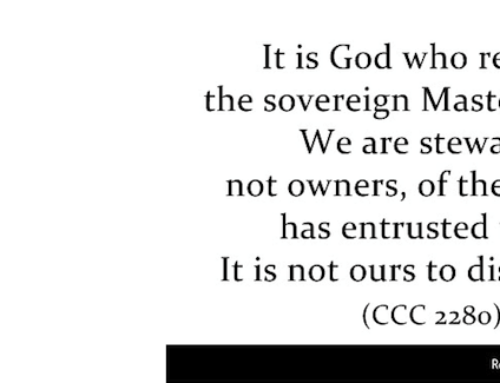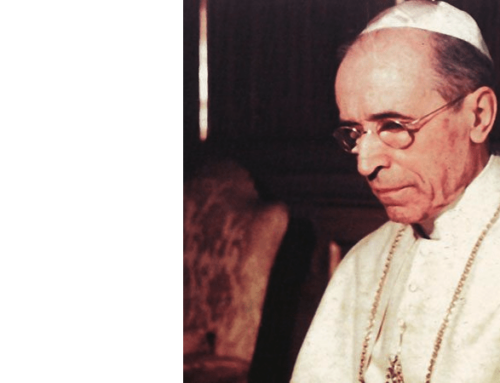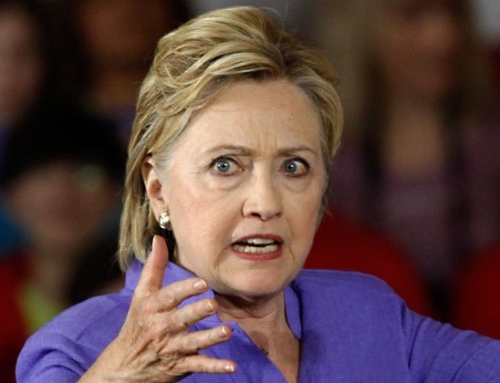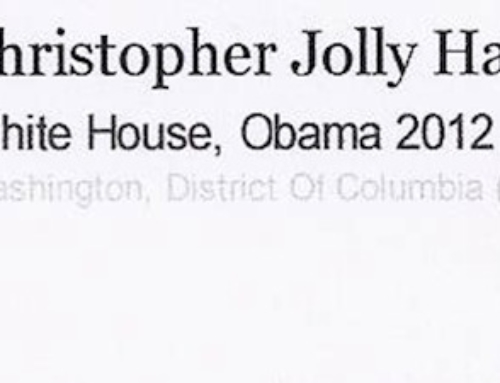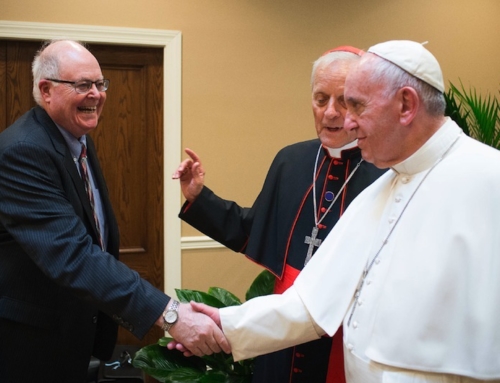Bill McGurn
June 2009
This article is an excerpt from a recent speech given by Bill McGurn to Notre Dame’s Center for Ethics and Culture
Good evening…
The precipitate cause of our gathering tonight is the honor and platform our university has extended to a President whose policies reflect clear convictions about unborn life, and about the value the law ought to place on protecting that life. These convictions are not in doubt. In July 2007, the candidate spelled them out in a forceful address to a Planned Parenthood convention in our nation’s capital.
Before that audience, he declared that a woman’s “fundamental right” to an abortion was at stake in the coming election. He spoke about how he had “put Roe at the center” of his “lesson plan on reproductive freedom” when he was a professor—and how he would put it at the center of his agenda as president. He invoked his record in the Illinois state senate, where he fought restrictions on abortion, famously including one on partial-birth abortion. He said that the “first thing” he wanted to do as President was to “sign a Freedom of Choice Act.” And he ended by assuring his audience that “on this fundamental issue,” he, like they, would never yield.
So tonight our hearts carry a great sadness. But we do not come here this evening to rally against a speaker. We come to affirm the sacredness of life. And we come with a great hope: That a university founded under the patronage of Our Lady might be as consistent in the defense of her principles as the President of the United States has been for advancing his. In a nation wounded by Roe…in a society that sets mothers against the children they carry in their wombs…we come here tonight because however much our hearts ache, they tell us this: Our church, our country, and our culture long for the life witness of Notre Dame.
What does it mean to be a witness? To be a witness, an institution must order itself so that all who look upon it see a consonance between its most profound truths and its most public actions. For a Catholic university in the 21st century, this requires that those placed in her most critical leadership positions—on the faculty, in the administration, on the board of trustees—share that mission. We must concede there is no guarantee that the young men and women who come here to learn will assent to her witness—but we must never forget that the university will have failed them if they leave here without at least understanding it. That is what it means to be a witness….
For most of her life, Notre Dame has served as a symbol of a Catholic community struggling to find acceptance in America—and yearning to make our own contributions to this great experiment in ordered liberty.
If we are honest, however, we must admit that in many ways we—and the university that nurtured us—are now the rich and powerful and privileged ourselves. This is a form of success, and we need not be embarrassed by it. But we must be mindful of the greater responsibilities that come with this success.
For years this university has trumpeted her lay governance. So what does it say about the Notre Dame brand of leadership, that in the midst of a national debate over a decision that speaks to our Catholic identity, a debate in which thousands of people across the country are standing up to declare themselves “yea” or “nay,” our trustees and fellows—the men and women who bear ultimate responsibility for this decision—remain as silent as Trappist monks? At a time when we are told to “engage” and hold “dialogue,” their timidity thunders across this campus. And what will history say of our billions in endowment if the richest Catholic university America has ever known cannot find it within herself to mount a public and spirited defense of the most defenseless among us?
In the past few weeks, we have read more than once the suggestion that to oppose this year’s speaker and honorary degree is to elevate politics over the proper work of a university. In many ways, we might say that such reasoning lies at the core of the confusion. As has become clear with America’s debates over the destruction of embryos for scientific research, over human cloning, over assisted suicide, and over other end-of-life issues, abortion as a legal right is less a single issue than an entire ethic that serves as the foundation stone for the culture of death.
Twenty-five years ago, on a similar stage on this campus, the then-governor of New York used his Notre Dame platform to advance the “personally-opposed-but” defense that countless numbers of Catholic politicians have used to paper over their surrender to legalized abortion. Eight years after that, the school bestowed the Laetare Medal on a United States Senator who had likewise long since cut his conscience to fit the abortion fashion.
Today we have evolved. Let us note that the present controversy comes at a moment where the incoherence of the Catholic witness in American public life is on view at the highest levels of our government. Today we have a Catholic vice president, a Catholic Speaker of the House, a Catholic nominee for Secretary of Health and Human Services, and so on. These are America’s most prominent Catholics. And they have one thing in common: The assertion that the legal right to terminate a pregnancy—in the chilling euphemism of the day—must remain inviolable.
For those who think this a partisan point, let us stipulate for the record one of the curiosities of the Republican Party. Notwithstanding the party’s prolife credentials, at the level of possible Presidential contenders, the most prominent pro-choice voices in the GOP arguably belong to Catholics: from the former Republican mayor and governor of New York, to the Republican Governor of California, the Republican former governor of Pennsylvania, and so on. Notre Dame must recognize these realities—and the role she has played in bringing us to this day by treating abortion as a political difference rather than the intrinsic evil it is.
In his writings, Pope John Paul II noted the awful contradiction of our times, when more and more legal codes speak of human rights while making the freedom to deprive the innocent of their lives one of those rights. Several times he uses the word “sinister” to characterize the enshrinement of abortion as a legal right. And he states that all pleas for other important human rights are “false and illusory” if we do not defend with “maximum determination” the fundamental right to life upon which all other rights rest.
Maximum determination. Ladies and gentlemen, the unborn child’s right to life represents the defining civil rights issue of our day—and it ought to be a defining civil rights issue on this campus.
Those who say that as Notre Dame engages the world, she cannot expect her guests to share all her beliefs are right. But that is not the issue. The issue is that we engage them. Think of how we would have treated an elected Senator or President or Governor whose principles and actions were given over to seeing that segregation enjoyed the full and unqualified protection of American law. We would have been cordial…we would have been gracious…we would have been more than willing to debate…but we would have betrayed our witness if ever we brought them here on the idea that all that divided us was one political issue….
…[I]magine the larger witness for life that would come from putting first things first. So often we find support for abortion rights measured against decisions involving war, capital punishment, and so on. All these issues deserve more serious treatment. But the debate over these prudential judgments loses coherence if on the intrinsic evil of abortion we do not stand on the same ground. What a challenge Notre Dame would pose to our culture if she stood united on this proposition: The unborn belong to no political party…no human right is safe when their right to life is denied…and we will accept no calculus of justice that seeks to trade that right to life for any other.
Let me end with a story about one of our family. His name is John Raphael; he belongs to the Class of ‘89; and he’s an African-American who runs a high school in New Orleans. He’s also a Josephite priest.
In his ministry, Father Raphael knows what it is like to answer the knock on his office door and find a woman consumed by the understandable fears that attend an unplanned pregnancy. He says that one of the greatest lessons he learned about how to respond to these women came from a friend of his, who had come to him in the same circumstances. The woman was an unmarried college student, and she told him what had surprised and hurt her most was how many friends greeted her news by saying, “Oh, that’s terrible.”
“That young lady taught me something,” says Father Raphael. “She taught me that what these women need first and foremost is to have their motherhood affirmed. For too many women, this affirmation never comes. We need to let these mothers know what their hearts are already telling them: you may have made a mistake, but the life growing within you is no mistake. That life is your baby, waiting to love and be loved.”
My young friends, this night I ask you: Make yours the voice that affirms life and motherhood. Be to those in need as the words of our alma mater: tender…strong…and true. And in your every word and deed, let the world see a reflection of the hope that led a French-born priest in the north woods of Indiana to raise Our Lady atop a dome of gold.
I thank you for your invitation. I applaud your courage. And as we go forth this evening, let us pray that our beloved university becomes the Notre Dame our world so desperately needs: a witness for life that will truly shake down the thunder.
God bless you all.
William McGurn is a columnist for the Wall Street Journal, a former chief speechwriter for President George W. Bush, and a member of Notre Dame’s Class of 1980.


